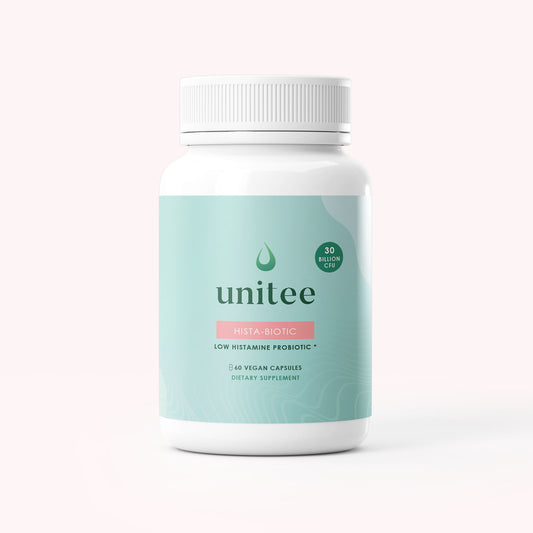Are you ALWAYS HUNGRY?
Do you feel like even after a meal, you don’t seem to feel any different than when you started?
Does this create problems for regulating your food intake?
Don’t worry, you’ve got a scientist on your side and today I’ve got you covered.
What Makes You Feel Hungry?
There are a lot of factors that contribute to your perception of hunger. These factors include things like how many calories your body needs, how balanced your blood sugar levels are, food type and availability, even things like how much sleep you’ve gotten that day!
But… what exactly is happening when you’ve just eaten and yet you still feel hungry?
Okay, so here comes the mini science lesson that you’ll be dying to know.
In order for you to properly perceive hunger and fullness, your body needs to send signals from the gut to the brain indicating that you’ve eaten so that your brain can process that you are full or satisfied.
This signal I’m talking about is actually a hormonal signal, which arises from your enteroendocrine system, which is a particular hormonal system that works within the gut.
If you’re not feeling satisfied, and it feels like you’re always hungry even after you’ve finished what should be a filling and nutritious meal, I would look to this system first.
Why You’re Always Hungry: The Role of Hormones
Dysregulation of the enteroendocrine system can cause big issues. Not only can it diminish your perception of hunger and fullness, but it can lead to overeating and unnecessary weight gain – which is not only aesthetically frustrating, but can cause several biological problems as well.
The enteroendocrine system is also heavily involved in insulin secretion. As you may already know, insulin is responsible for controlling blood sugar, so if you’re experiencing issues with this system, the outcome may also be dysregulated blood sugar.
Blood sugar dysregulation is dangerous in numerous ways. Specifically regarding today’s discussion, blood sugar highs and lows can be behind moments in the day where you feel tired or low in energy, and end up craving sugary foods or simple carbohydrates in order to raise blood sugar back to a normal level. Yep, I’m talking to those of you who have the afternoon or evening carb binges that destroy your ‘healthy diet’ within minutes of the day.
Additionally, insulin is actually responsible for storing excess energy as adipose tissue (fat), meaning that if this system is dysregulated you can actually be storing more fat from eating the same amount of food.
As you may have realized by now, dysregulation of the enteroendocrine system poses a triple-loss:
- Improper hunger and fullness signalling means you’re not going to feel satisfied from what you eat, and will either end up overeating or constantly restricting yourself, which poses major stress on your body and can lead to weight gain.
- Dysregulated blood sugar means that your energy levels and cravings will be way out of whack, and you can easily end up binge-eating the wrong foods during the day.
- Insulin issues may result in storing more fat from eating the same amount of food.
Overall, this means that you are both consuming more food and storing more fat, all while feeling less satisfied and always hungry. What a bummer!
All of this info may seem super complex – and it is! But, the good news is that the solution is not!
Stop Feeling Hungry All The Time: Fixing Hunger and Fullness Signalling
One of the healthiest, best and easiest ways to regulate your enteroendocrine system and fix your hunger and fullness signalling is through the use of something called prebiotic fibers – in particular, a fiber called inulin.
Inulin is a fiber that can be found in common foods such as leeks, onions, asparagus and bananas. This fiber actually works through this exact same mechanism, starting at a bacterial level, in order to improve hormonal signalling at it’s highest level.
In fact, several studies have shown the use of inulin to regulate both appetite and hormone levels, and produce weight loss in subjects supplementing with inulin.
By increasing consumption of the foods I’ve listed above, you can actually help to regulate your hormonal levels and your hunger and fullness signalling from home. The issue with this, however, is that many people find it difficult to consume high enough levels of inulin to reach therapeutic values simply by eating these foods – especially if digestive issues exist.
Another and more simple way is simply through the use of an inulin extract. Inulin extracts come in an all-natural powdered form that can be sprinkled onto foods to create bigger effects with less effort.
Regulating Your Appetite: How to Use an Inulin Extract
Sudden increases in fiber can actually make you feel bloated or uncomfortable if your body isn’t used to it. Even if it’s going to be good for your health and waistline, it’s always best to let your body naturally adjust to the change.
The best way to ease your body into increasing prebiotic fiber consumption is to use a dose-escalation method. This means starting off with only 4g of inulin per day, and increasing this dose by 2g weekly to allow your body to adjust.
In studies that supplemented inulin at a dose of 8g weekly for 6 weeks, subjects demonstrated highly significant benefits for regulating appetite and measured hormone levels.
This means that levels of hunger, energy and fat storage were all improved, simply by adding a small dosage of this natural fiber to their daily routine.
My scientific recommendation for a good quality and economical inulin supplement can be found here.
Remember, it’s not always about dramatically altering your life. Sometimes, small, natural changes make a big difference!
Health begins in the gut,
Anita Tee, MSc, BSc

Anita Tee
My name is Anita Tee. I'm a nutritional scientist who specializes in histamine intolerance. I hold a Master of Science in Personalized Nutrition and a Bachelor of Science in Human Biology and Psychology.For the past ten years, I have used my experience in nutritional and medical health sciences to create a scientifically backed, natural approach to healthcare that relies 100% on evidence-based research.As I previously suffered from - and overcame - histamine intolerance, my focus is to increase recognition and expand the available resources and protocols available for resolving this particular disorder. To date, I have helped over 4,000 individuals fully resolve or better manage their histamine intolerance symptoms.







